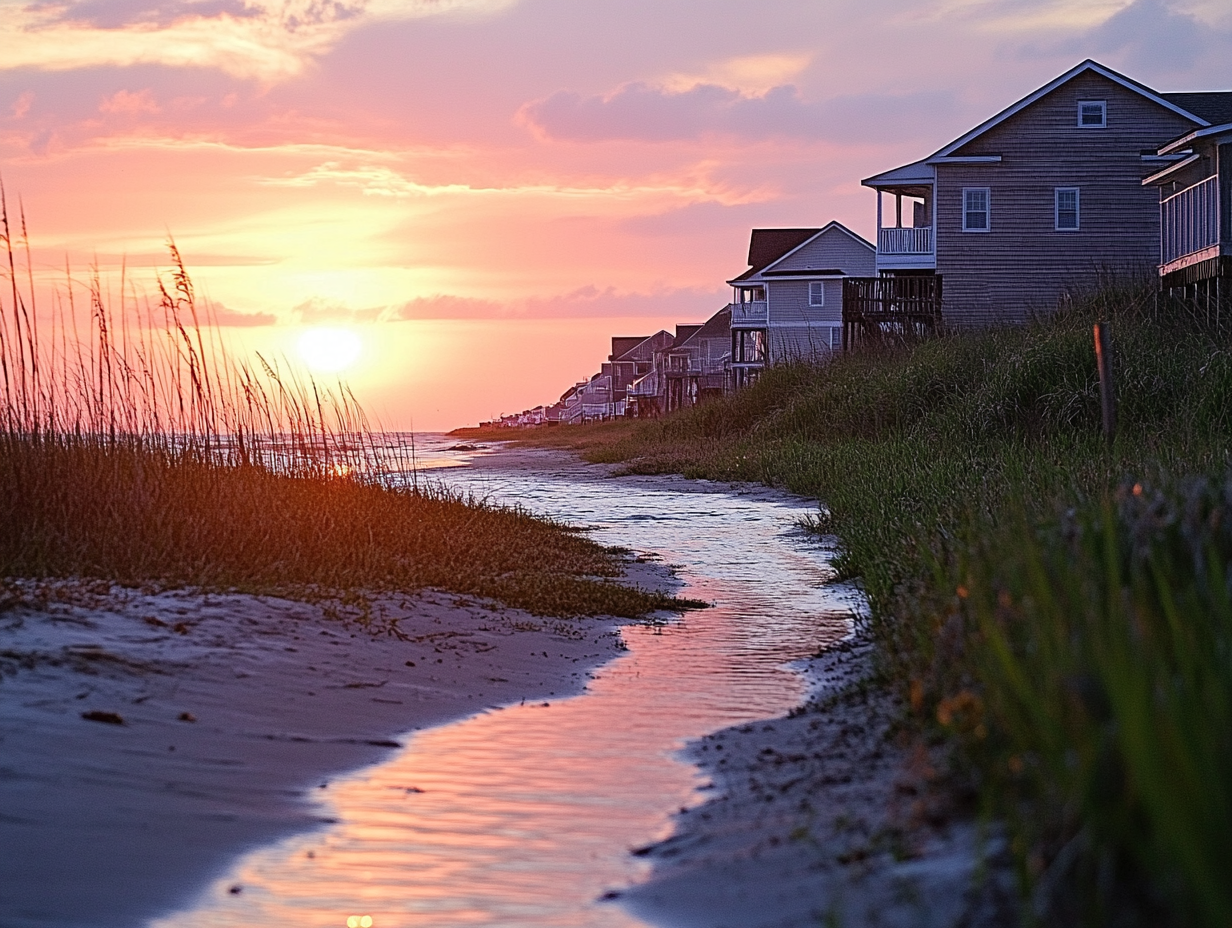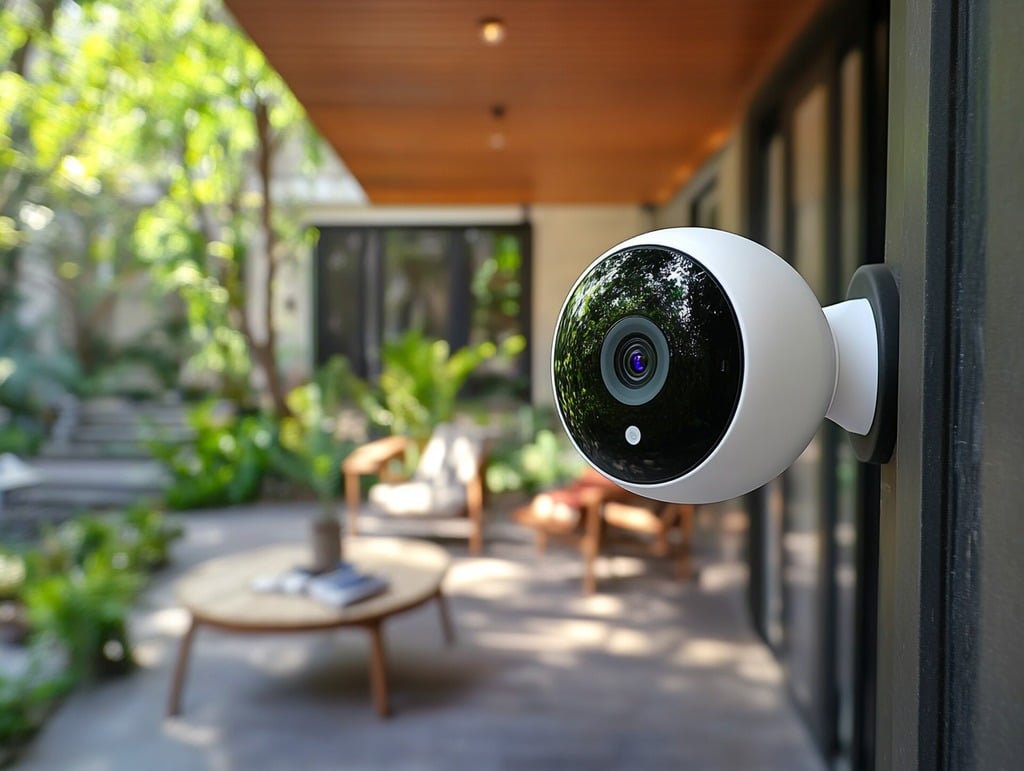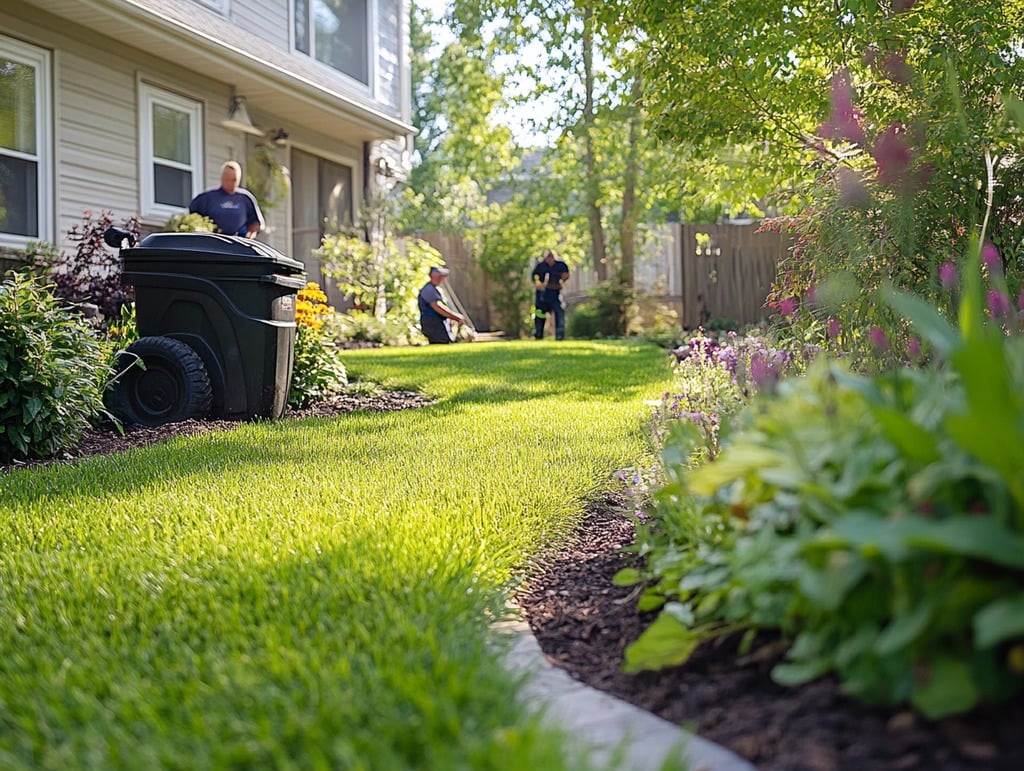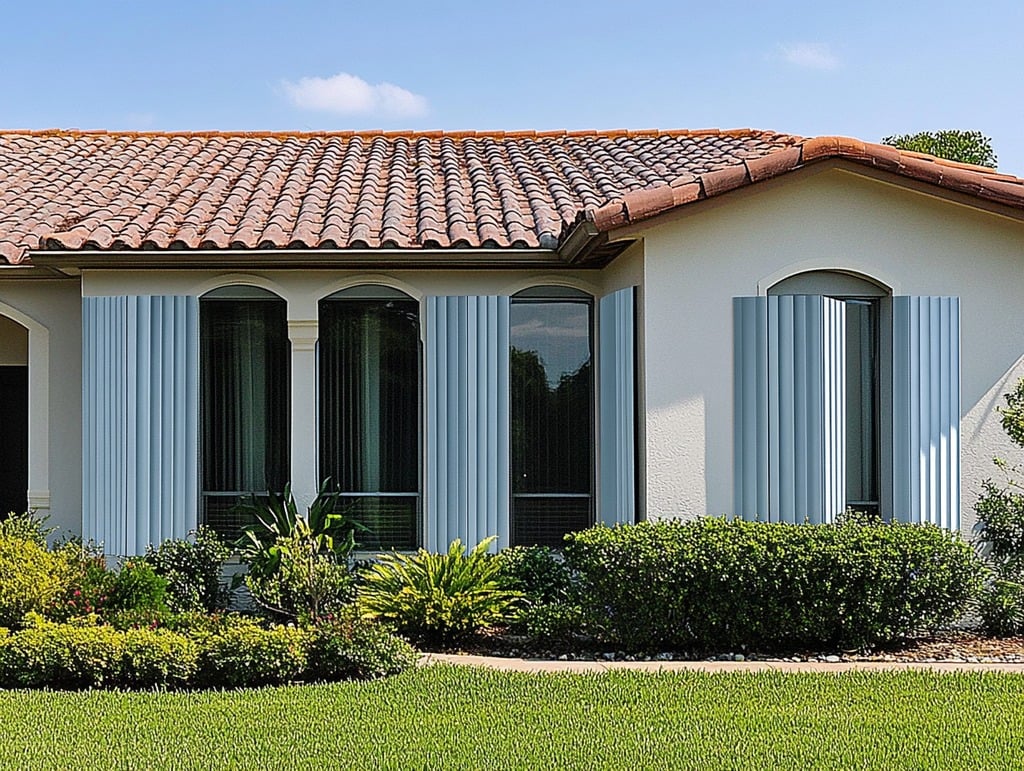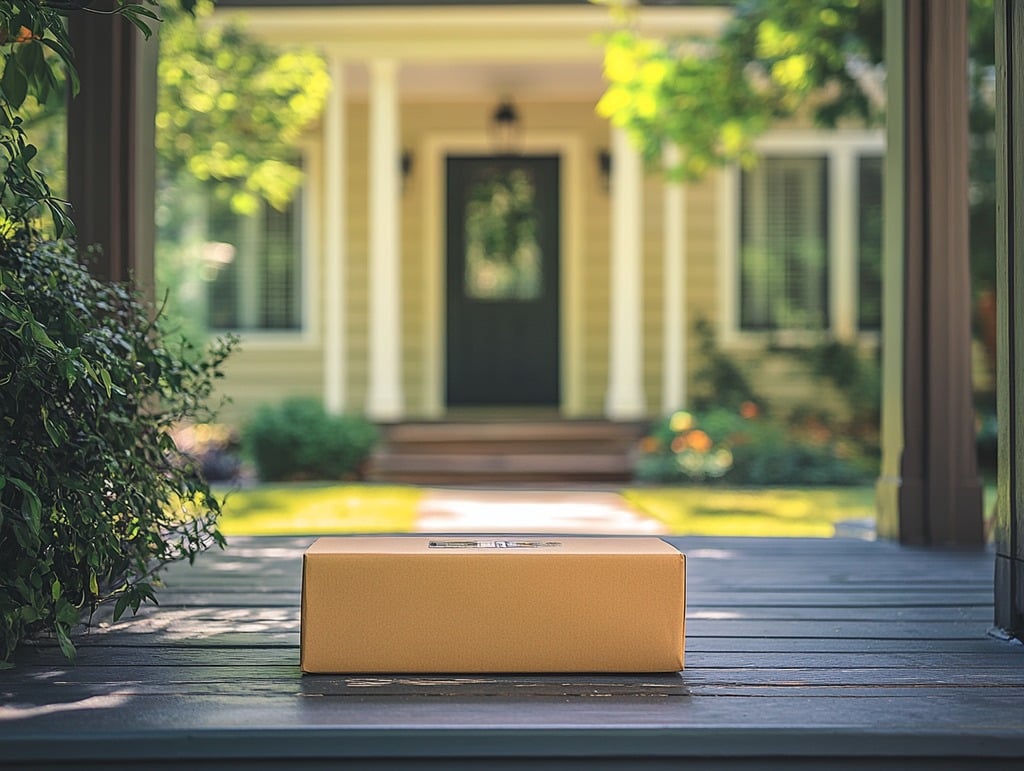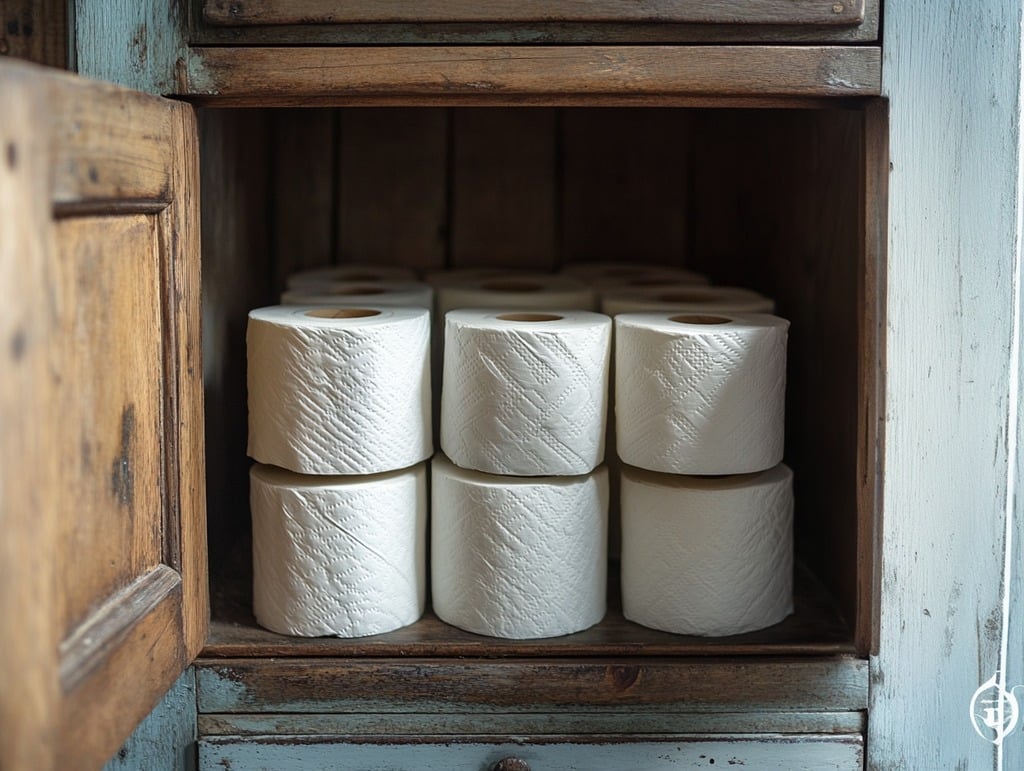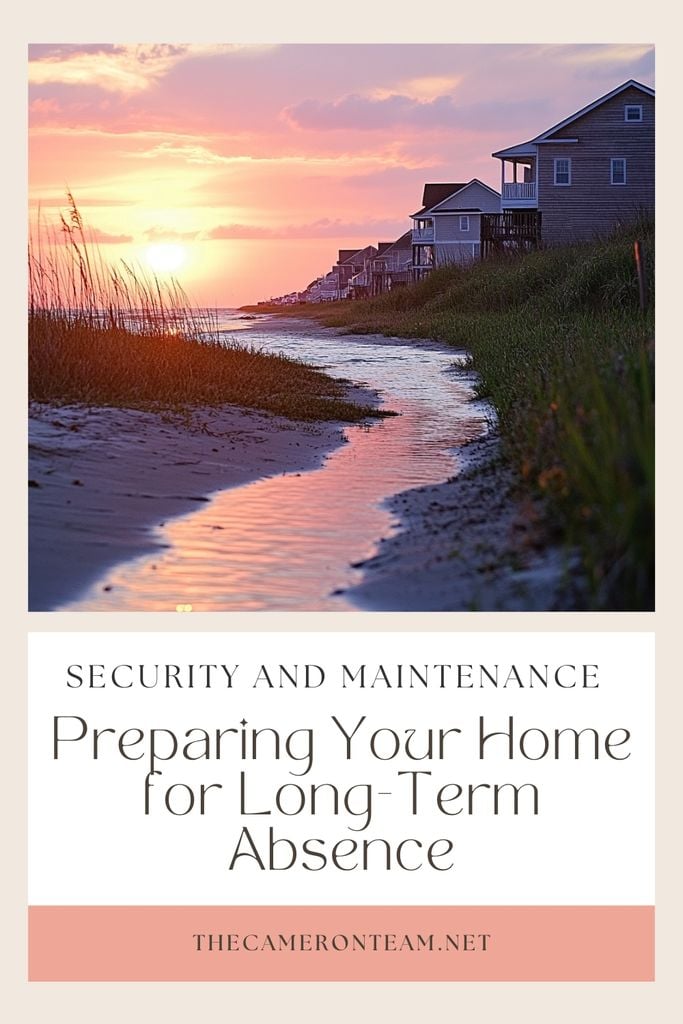If you own a vacation home or second property in Southeastern North Carolina, you know just how serene and enjoyable it can be. But when life calls you back to your primary residence for months at a time, leaving your cherished getaway empty, it’s essential to take steps to protect and maintain it. Between unpredictable weather, potential security issues, and everyday wear-and-tear, a lot can happen when a house sits empty. Here’s a comprehensive guide on how to secure and maintain your vacation home during long-term absences.
Why Proper Preparation is Crucial
For homeowners in Southeastern North Carolina, long-term property vacancy isn’t uncommon. This region, with its stunning coastlines and mild winters, attracts vacationers and seasonal residents, making “snowbird” properties and vacation homes popular. However, an unattended home faces risks—whether it’s a break-in, water damage, or mold growth from the humidity. Planning ahead not only protects your investment but ensures that when you do return, your home is ready to welcome you back.
1. Security Measures to Safeguard Your Property
First things first—let’s talk security. An unoccupied home can be a target, but there are smart strategies you can implement to keep your property safe.
Install a Home Security System
A high-quality security system is a must. Look for a system that includes:
- Motion sensors and alarms: These notify you of any unusual activity.
- Surveillance cameras: Choose ones with remote access so you can monitor from anywhere.
- Smart locks: Control access digitally if you have maintenance workers or guests who need entry.
Many security companies offer systems tailored to vacation homes, complete with monitoring packages. Additionally, having visible security cameras or alarm company signs can deter potential intruders.
Set Up Smart Home Devices
Smart home devices aren’t just convenient—they can be a critical part of keeping your home safe. Here’s what to consider:
- Smart lights: Set timers or use motion-activated lighting to create the appearance of activity.
- Smart thermostats: Program them to maintain a stable temperature, reducing the chance of mold or other climate-related issues.
- Leak and moisture sensors: These are invaluable in areas prone to flooding or high humidity, like Southeastern North Carolina.
Not only do these devices enhance security, but they also allow you to monitor your home’s condition remotely.
Inform Trusted Neighbors or Property Managers
If you have a reliable neighbor or property manager, consider informing them of your absence. They can keep an eye on the property, collect any mail, and alert you if they notice anything unusual. Just be sure they’re trustworthy and comfortable with the responsibility.
2. Routine Maintenance to Prevent Long-Term Damage
Homes need regular care, even when no one’s there. Letting maintenance slide for months can lead to costly repairs down the line.
Schedule Regular Lawn and Yard Maintenance
In Southeastern North Carolina, a neglected yard can make it clear that the property is empty. Arrange for regular lawn mowing, leaf blowing, and basic landscaping. Not only does this improve curb appeal, but it also reduces the risk of pests and keeps the home from looking abandoned.
Check the Roof and Gutters
Before leaving, ensure your gutters are clear of debris, as blocked gutters can lead to water damage. If you’re planning for a very long absence, hire someone to inspect the roof and gutters periodically, especially after storms. Southeastern North Carolina can experience heavy rains, so a little prevention goes a long way.
HVAC System Maintenance
A vacation home sitting empty doesn’t mean the HVAC should be ignored. In humid climates like North Carolina’s, stagnant air can lead to mildew and mold growth.
- Set the thermostat to a stable temperature: This helps prevent condensation and controls humidity.
- Clean filters: Replace HVAC filters before leaving, and consider having a local technician perform a tune-up.
- Use a dehumidifier: If your home tends to get humid, a dehumidifier can reduce the chance of mold growth.
Plumbing Precautions
Nothing’s worse than coming back to a water disaster. Follow these tips to avoid plumbing headaches:
- Shut off the main water supply: If no one will be using the home, turn off the main water to prevent leaks.
- Drain pipes: In winter, consider draining pipes to prevent freezing, especially if temperatures drop unexpectedly.
- Add anti-freeze: For toilets and sinks, you might add a small amount of antifreeze to prevent pipes from freezing.
3. Prepare for Coastal Weather Conditions
Southeastern North Carolina is known for its beautiful coastline, but also its vulnerability to hurricanes and tropical storms. Preparing for extreme weather is crucial when you’re away.
Secure Doors and Windows
Invest in storm shutters or impact-resistant glass for windows. At the very least, install durable window locks. Doors should also be reinforced, especially if
they open outward, as these are generally more resistant to high winds. For sliding doors, adding a security bar or dowel in the track can prevent forced entry.
Clear the Yard of Potential Hazards
Before leaving, ensure that your yard is free of loose items, such as patio furniture, planters, and any decor that could become projectiles in strong winds. Either bring these items indoors or secure them firmly. Additionally, trimming trees and shrubs around the house minimizes the risk of branches causing damage during a storm.
Consider Hurricane-Proofing
If your vacation home is along the coast, investing in hurricane shutters, reinforced garage doors, and even a wind-resistant roof could be a wise long-term choice. These upgrades can protect your home not only from wind but also from water damage, which can be extensive in storm-prone areas.
4. Financial & Administrative Preparation
Beyond physical maintenance, some financial and administrative steps can make your life easier and help prevent surprises.
Insurance Review
Review your homeowner’s insurance policy to ensure you’re adequately covered, especially for risks like flooding, wind, and hurricane damage. Some standard policies may not include these, and with Southeastern North Carolina’s coastal proximity, flood insurance is often a smart addition.
Arrange for Utility and Service Payments
Automate payments for necessary utilities or services that need to remain active, such as electricity for climate control or a security system. A missed bill can result in utility cutoffs, which could lead to additional problems like frozen pipes or a non-functioning security system.
Mail and Package Handling
An overflowing mailbox is a clear signal that a home is unoccupied. To avoid this, forward your mail to your primary address, or put a hold on it with the USPS. Additionally, if packages are delivered regularly, consider suspending subscriptions or redirecting deliveries to prevent unwanted items from piling up at your door.
5. Consider Professional Property Management
For many second homeowners, hiring a property management company can be worth the investment. A property manager can:
- Conduct regular inspections: This can include checking for leaks, pests, or any security breaches.
- Handle maintenance and repairs: From arranging lawn care to fixing small issues before they become big ones, they can keep your property in top shape.
- Act as a point of contact: In case of emergencies, a property manager can quickly address the situation and contact you if needed.
Property managers typically charge a monthly fee, but having peace of mind that your vacation home is well-maintained and secure often justifies the cost.
6. Prepare for a Smooth Return
After all your planning and preparation, don’t forget to think about what you’ll need when you come back. Preparing a checklist for your return can ensure a smooth transition from empty house to a cozy home.
Stock Up on Essentials
Before leaving, stock up on non-perishable essentials so that you won’t have to rush out for basics when you return. This can include:
- Cleaning supplies
- Toiletries
- Pantry staples like rice, pasta, and canned goods.
Plan for a Refreshing Clean
Even in a well-maintained home, dust and musty odors can accumulate. If you’ve hired a property manager, ask them to schedule a cleaning before you arrive. Otherwise, plan to spend a few hours freshening up, including airing out rooms and running the HVAC or dehumidifier.
Reconnect Utilities and Services
If you turned off the water, certain utilities, or subscriptions while you were away, make sure you have a list of everything that needs to be reactivated. A little planning ahead will make sure you’re not left without water, internet, or power upon return.
Frequently Asked Questions
Q. Should I drain the pipes in my vacation home before leaving?
A. Yes, it’s a good idea to drain the pipes, especially during the winter months. Freezing temperatures can cause pipes to burst, so taking precautions by shutting off the water supply and draining pipes can help prevent water damage.
Q. Can a security system work without internet in my home?
A. Some security systems can operate without internet, relying instead on cellular data. However, internet-enabled smart systems provide more control and real-time monitoring. If your vacation property doesn’t have reliable internet, consider a system that offers cellular backup.
Q. How often should someone check on my vacation home when I’m away?
A. Ideally, someone should check on the property at least once a month. This helps catch any issues early, whether it’s a leak, pest infestation, or an electrical problem. If you can’t rely on a neighbor, a property management service is a good alternative.
Q. Is it worth installing a smart thermostat in a vacation home?
A. Absolutely. Smart thermostats allow you to monitor and control the temperature remotely, which can prevent issues like mold due to humidity and save on energy costs.
Q. What type of insurance should I have for my vacation home in Southeastern North Carolina?
A. Flood and hurricane insurance are especially important in this region due to its proximity to the coast. Review your policy to ensure coverage for any weather-related risks specific to your location.
Wrapping It Up
Leaving your Southeastern North Carolina vacation home for an extended period doesn’t have to be stressful. With a bit of planning and the right precautions, you can ensure your property remains safe, secure, and well-maintained. From installing a security system and taking care of essential maintenance to enlisting the help of a property manager, these steps will help you protect your investment and keep your home ready for your next visit.
Whether you’re a seasonal visitor or a frequent traveler, a little preparation goes a long way. Now, you can have peace of mind knowing your home is in good hands—even when you’re miles away.

